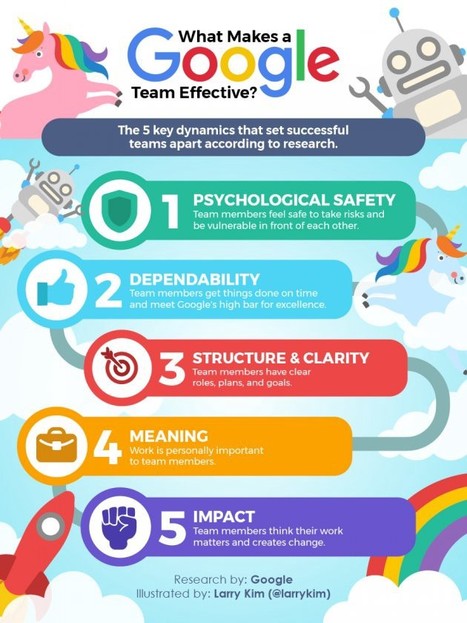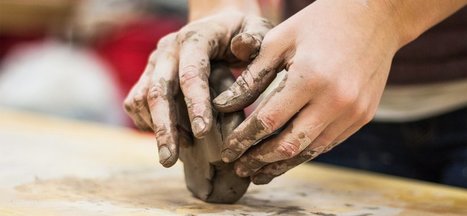It’s no surprise that Google, now part of Alphabet, loves data, and the company’s execs frequently share the revelations they find, such as their insights on mobile web use. But some of us would be surprised to discover that this unicorn company often turns its eye inward, analyzing information about its people to help improve its operations.
A group of employees from Google’s People Operations section, the equivalent of an HR department, decided to complete an analysis to answer one question: What makes a Google team effective?
Here’s a look at their approach and the startling revelations they had along the way.
Via The Learning Factor



 Your new post is loading...
Your new post is loading...
















It’s no surprise that Google, now part of Alphabet, loves data, and the company’s execs frequently share the revelations they find, such as their insights on mobile web use. But some of us would be…
Google's Five Dynamics of team effectiveness are applicable to creating effective safety cultures as well. Dynamic 1 - psychological safety is of particular importance because so often employees fear speaking up about safety concerns.